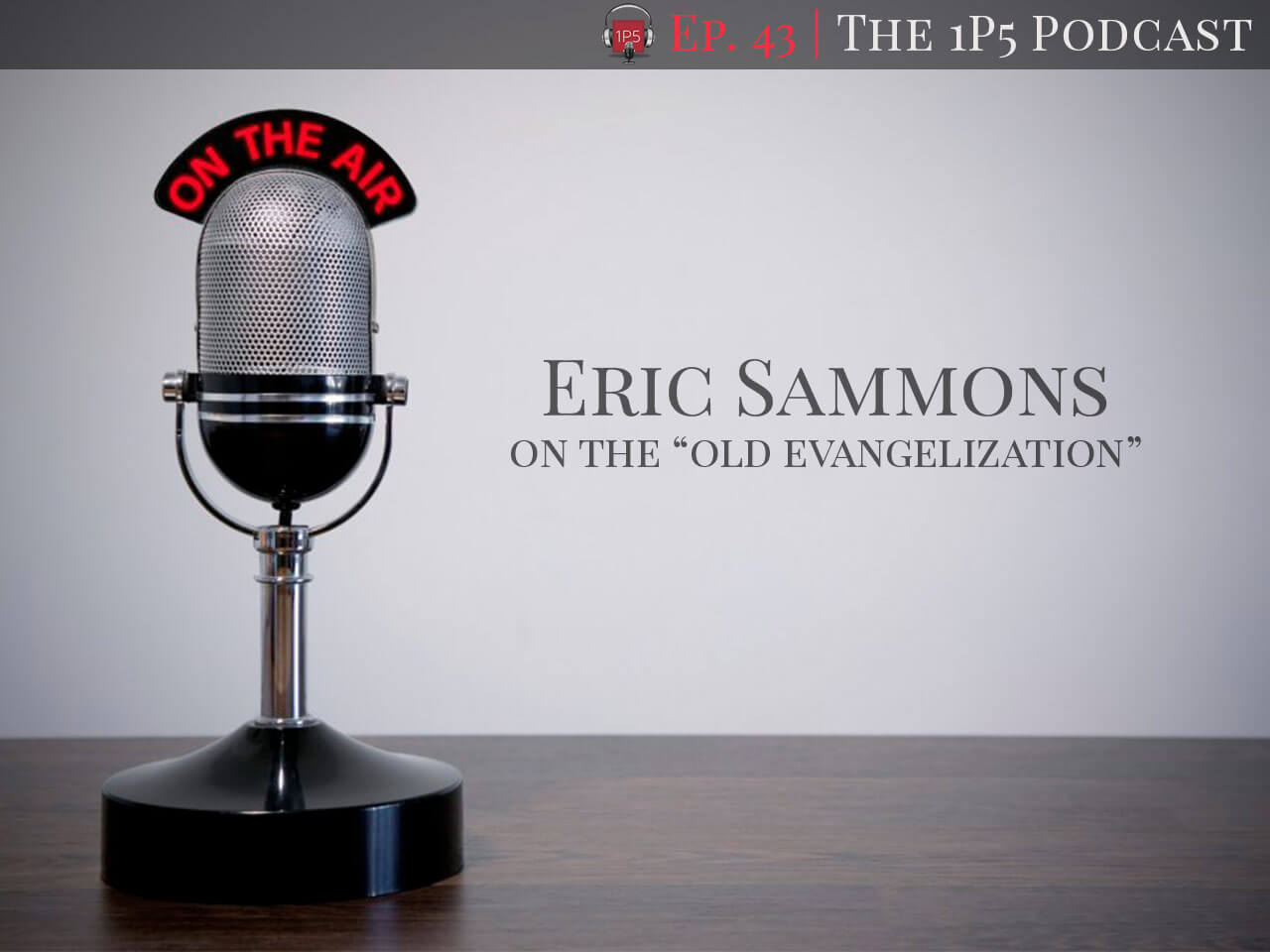Guest: Eric Sammons, Catholic writer and author of six books, including The Old Evangelization: How to Spread the Faith Like Jesus Did.
Description: What is evangelization? What does it mean to evangelize? What are the goals and means to be successful in carrying out the Great Commission? In this epsiode, Steve talks to Eric Sammons, who has been involved in evangelization efforts for 25 years to get answers on how to be apostles seeking conversion in the modern world.
[powerpress]
Related Links:
- The Old Evangelization: How to Spread the Faith Like Jesus Did – (Amazon link)
- Eric Sammons’ author page at 1P5
- “The Missing Ingredient in Today’s Catholic Evangelization” – article by Eric Sammons (mentioned in the podcast)
- “Making Mass ‘Relevant’ is Irrelevant to Evangelization“- article by Eric Sammons (mentioned in the podcast)
- Eric Sammons’ Website
Please remember to stop by and give us a positive review on iTunes so that more people can find our podcast!


